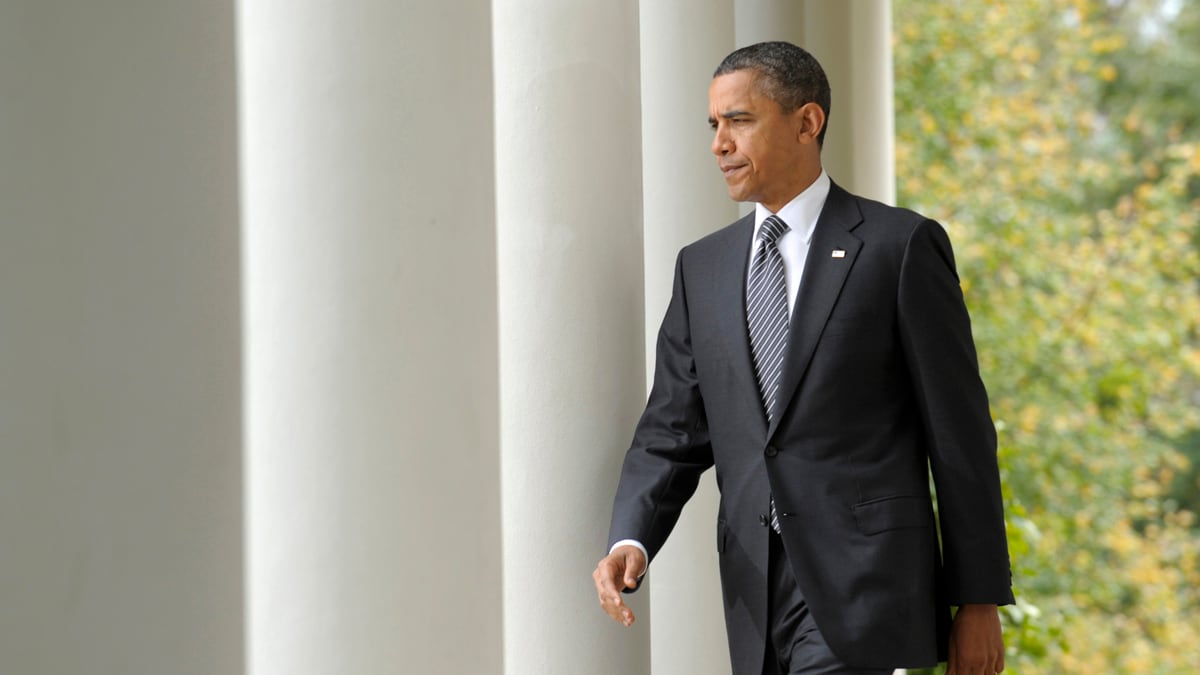After rolling up a string of successes at capturing and killing the worst of the worst, President Obama polls 10 to 15 points higher on national security than on almost any other issue. On the economy, there is a 20-point gap with his numbers on national security. Barack Obama going after bad guys all over the globe is not what the American people expected when they elected him, and it’s not the Obama that Republicans thought they would be running against.
Obama has made some big bets on national security, and they’ve paid off handsomely. Republicans and some Democrats criticized his decision to intervene militarily in Libya: some saying he waited too long or shouldn’t have put NATO in charge, others that he should have stayed out. But the news Thursday that longtime dictator Muammar Gaddafi had been killed—his regime toppled at minimal cost and with no loss of American life—vindicates the president’s decision.
“Reagan tried to get Gaddafi and missed; Obama got him,” says Lawrence Korb, an assistant secretary of defense in the Reagan administration, and now a senior fellow at the Center for American Progress. “Bush tried to get bin Laden; Obama got him. He got Awlaki (the American-born cleric who became a terrorist leader). Twelve of the 16 top al Qaeda leaders are dead, and he’s done that.”
When it comes to national security, Obama has been surprisingly decisive, especially when compared with his record on the economy, which has been marred by a lack of focus, mixed messages, and false starts. The demise of Gaddafi adds a much-needed layer of insulation against GOP attacks as the 2012 campaign heats up. “It doesn’t mean they [Republicans] won’t try, but they’ll have trouble making the weak-leader charge stick,” says Matt Bennett of the centrist Democratic group, Third Way.
Republicans are working to cast the president as another Jimmy Carter, beset by economic difficulties and unable to cope with the complexities of the job. The difference is that Obama has proven himself as commander in chief, which Carter was unable to do, especially in the Iranian hostage crisis—opening the door to Ronald Reagan’s robust style of leadership in both the Cold War and economic woes at home. Obama has neutered half the opposition’s argument with his record on national security. Even with a weakened economy, he is still in the game, which might not be the case if he were failing on national security.
“The main thing it does for Obama is make it impossible to Jimmy Carterize him,” says Norm Ornstein, a longtime analyst with the American Enterprise Institute. “The idea you’ll criticize him for a feckless foreign policy is ludicrous.”

The deaths of Gaddafi and a host of high-value terrorists make up but a partial list of Obama’s high-risk calls. The Third Way’s Bennett also includes the firing of Afghanistan commander Gen. Stanley McChrystal for making intemperate remarks in the presence of a reporter, and replacing him with the highly regarded David Petraeus, whose credibility on Capitol Hill bought time to stabilize a volatile situation in Afghanistan. The list includes “even the pirates,” says Bennett, referring to the Navy snipers who fired three shots to take out three pirates in a lifeboat, rescuing an American cargo ship captain.
These actions were the result of judgment calls by Obama, and yet he doesn’t seem to get much credit. Even the killing of Osama bin Laden, the 9/11 mastermind who eluded President Bush for almost eight years, didn’t gain Obama much in the polls. “The great irony of this president is, he started with foreign policy,” says Korb, recalling how Obama entered the race in 2007 on the strength of his opposition to the Iraq War. “Now he’s gotten that fixed—but he’s going to win or lose on the economy.”
Just as Bush did with Iraq, Obama took a chance with Libya. “These were not wars of necessity; they were wars of choice,” says Korb. “And when you have a war of choice, you do a cost-benefit analysis. Are the benefits greater than the cost? In Iraq, if you told the American people in 2003 it would cost two to three trillion and we’re going to kill a couple hundred thousand Iraqis, that 4,500 Americans would be killed, 40,000 physically wounded, and four to five hundred thousand with mental problems, you’d be laughed out of the ballpark.”
By organizing NATO airstrikes on behalf of a ragtag Libyan opposition, Obama won his gamble, perhaps establishing a precedent of international engagement that will continue beyond his presidency. He waged war in Libya quietly but unapologetically, rarely drawing attention to the intervention, and stressing that no boots would be put on the ground. As weeks turned into months and the critics got louder, he stuck with the mission.
The president took credit in a low-key statement before the cameras Thursday, praising America’s soldiers and sailors as well as “our leadership at NATO” that “helped guide our coalition…Working in Libya with friends and allies, we’ve demonstrated what collective action can achieve in the 21st century.” There was no “Mission Accomplished” landing on an aircraft carrier, but then, the president had lowered the risks by arranging for Britain and France to lead the bombing missions.
Voters can be forgiven for not dancing in the streets now that Gaddafi is gone. “People basically assumed he was dead already with the liberation of Libya,” says Bennett. “The entire Libya campaign was waged so quietly, it was really an elites’ discussion.” The string of successes may not help Obama in 2012, but they have defused what might have been a major vulnerability.





